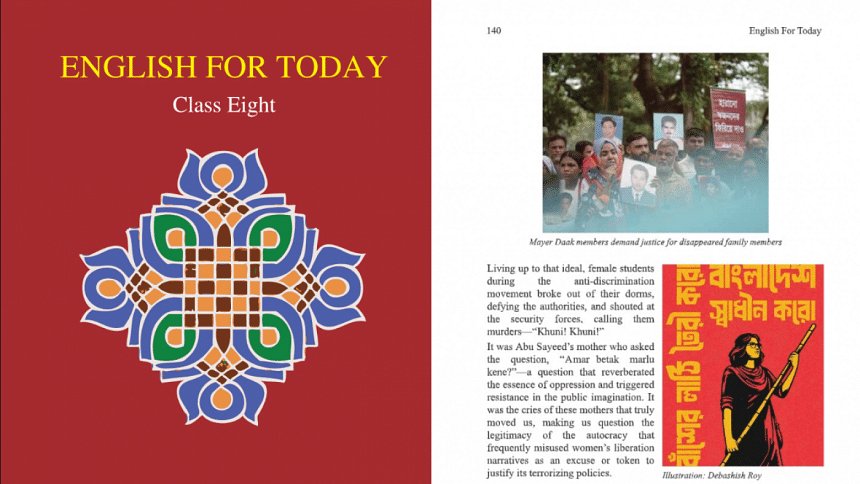
In a dramatic turn of events, Maayer Daak—a platform campaigning against enforced disappearances—has found a place in the eighth grade English textbook after years of being harassed by the previous Awami League regime.
Roughly translating to ‘mother’s call’, in reference to mothers looking for their lost children, Maayer Daak represents voices of families torn apart by enforced disappearances.
The platform is mentioned in English for Today, the main English text of class 8 students in a chapter titled “Women’s Role in Uprising”.
It says, “We witnessed initiatives like Mayer Daak, a group of women whose family members had faced enforced disappearances; they became one of the most enduring symbols of defiance and calls for justice during the autocratic rule”
“They staged demonstrations and faced possibilities of persecution but could not be stopped,” reads the text.
The textbook also contains a photograph of a demonstration of Maayer Daak.
“This is history. It will also inspire us. To me this is recognition at the highest level as the new generation will learn about how the families of the disappeared are fighting,” Sanjida Islam Tulee, one of the coordinators of Maayer Daak told this newspaper.
She said that the new generation and people in general will come to know how to fight back against human rights violations.
“We should keep fighting. It is not that we will always win. But it is important to keep the hope alive,” she added.
Maayer Daak started its journey as a platform in February 2014 with eight families of victims. Now, the platform represents around 1,000 families whose dear ones have become victims of enforced disappearance. They raised their voice during Sheikh Hasina’s autocratic regime.
The interim government’s commission for inquiry into enforced disappearances in its preliminary report, submitted to Chief Adviser Professor Muhammad Yunus, recorded 1,676 complaints of enforced disappearances.
Of the complaints, it has examined 758, of which 27 percent—about 200 people —never returned, commission member Sazzad Hussain told The Daily Star.
The commission estimates that the number of cases of enforced disappearances could be over 3,500.
In his televised address on December 16, Yunus said the preliminary report of the inquiry commission was a “chilling document” and details the “unimaginable brutality” that humans can inflict on one another.
This report will remain a historical record of the most despicable chapter of the previous government, he said.
Daily Star









